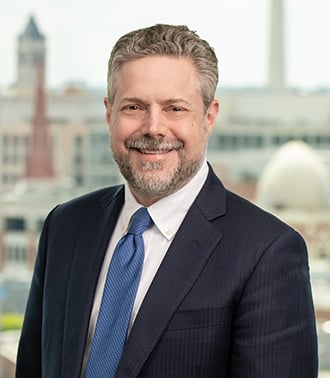Holy Monopoly: DOJ Antitrust Ready to Revive a Criminal Arrow in Its Quiver
In their separate antitrust presentations yesterday at the ABA’s White Collar Conference in San Francisco, Deputy AAG Richard Powers and Principal Deputy AAG Doha Mekki saved their biggest news for last: as we previously predicted, DOJ is looking to break new ground by bringing criminal antitrust charges under Section 2 of the Sherman Act for monopolistic acts and conspiracies to monopolize. Powers prefaced his comments by saying he was making no new announcements, just echoing Antitrust Chief Jonathan Kanter’s recent speech to the NY State Bar Association that DOJ would use all available tools at their disposal. He explained that DOJ had an obligation to deter the most flagrant anti-competitive conduct, and the Division’s tools include criminal monopoly charges, where the facts and law support such charges. “Follow the facts,” he said, is the internal directive in using prosecutorial discretion to pursue a case criminally or civilly or to decline to pursue. Mekki too repeated the refrain. Where the facts and law are there, the Antitrust Division, she said, will be using all criminal statutes in its toolbox, including now Section 2 of the Sherman Act, to charge anti-competitive monopolistic behavior criminally. The Antitrust Division has not charged a criminal Section 2 case since the 1970s, so this marks a significant change in DOJ practice.
Following the same theme, Powers and Mekki said their department would continue to investigate and prosecute—“to push”—no-poach cases as “a top priority.” Powers noted that such no-poach and no-solicit agreements cause real economic harm to workers, including lower wages, restricted mobility, fewer job opportunities, and weakened bargaining power over terms of employment. He said there are currently six indicted labor market cases, with more to come. Mekki was even more blunt: read the facts charged in these indictments—they are “very crime-y facts” and “shame on us for not charging such cases criminally before.”
Powers began his panel presentation by noting his division’s “historic level” of trials and investigations the past year, including 18 indicted cases against 10 companies and 42 individuals and 146 grand jury investigations (the most in 30 years). He also cited DAG Lisa Monaco’s October pronouncement at the last WCC in Miami about needing to be aggressive in bringing cases where the government will not always win. We support prosecutors who “lean in” and pursue such cases with higher litigation risk, he said, and “we will have their backs” if they lose. Powers acknowledged that in comparison with the slew of domestic cases, there has been a diminution of international cartel cases, for a variety of reasons he did not elucidate. He said international cartel cases remained a priority, given the big impact such price fixing and collusion have on the American economy. One by-product of the pandemic is that international enforcers on Zoom had more time to stay in touch and coordinate future efforts. Powers reminded the audience that only a few weeks ago, on February 17, DOJ announced a supply chain initiative with the FBI to create a working group with the United Kingdom, Canada, New Zealand, and Australia to focus on collusive actions to keep prices high even when supply chain issues have dissipated. So stay tuned on the international front, where more cases seem likely to develop.
Powers highlighted two other areas of DOJ focus. First, he described the Procurement Collusion Strike Force (PCSF), launched in 2019 to punish procurement collusion at the federal, state, and local levels. Twenty-two USAOs are currently involved, along with seven federal investigatory agencies, 25 agency OIGs (out of 70), and international partners. He said one prong of the PCSF’s work has been to train over 17,000 agents and inspectors across the country and world on red flags of collusive activity. The second prong is then to investigate and prosecute meritorious cases. To aid the enforcement effort, the government increasingly is using data analytics to see signs of collusion, similar to the way healthcare fraud strike forces for years have been mining data for aberrational levels of testing and billing. Mekki in her talk also cited the “trove of data” that exists in the government bidding process and that will help agents and prosecutors find and develop their cases. In her final comments, Mekki noted DAG Monaco’s exhortation to “be bold,” and she suggested it is energizing for her division to have an Attorney General, Merrick Garland, with deep experience in antitrust law. So, she concluded, her division has the high-level support to be smart, creative, righteous, and bold in their cases, both civilly and criminally.
© Arnold & Porter Kaye Scholer LLP 2022 All Rights Reserved. This blog post is intended to be a general summary of the law and does not constitute legal advice. You should consult with counsel to determine applicable legal requirements in a specific fact situation.



